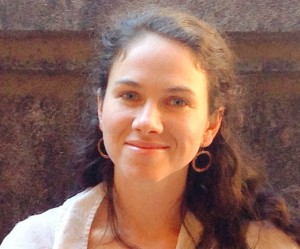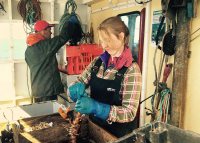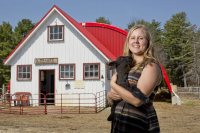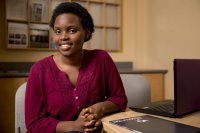
In second major award, Tolosky ’15 receives Projects for Peace grant
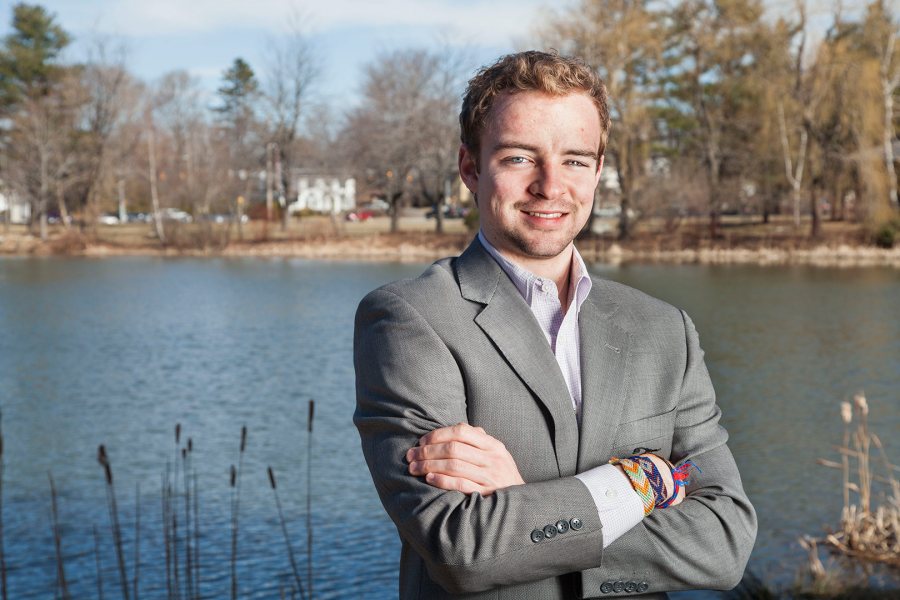
Patrick Tolosky ’15, a Spanish major and premed student from Longmeadow, Mass., was awarded a Davis Projects for Peace grant to build a health center in Peru. (Josh Kuckens/Bates College)
A Spanish major at Bates College, Patrick Tolosky ’15 of Longmeadow, Massachusetts, has been awarded a Davis Projects for Peace grant to construct a health center with the people of the Q’eros nation, located in a remote region of the Peruvian Andes.
Now in its ninth year, Projects for Peace provides $10,000 grants to aspiring undergraduates attending member institutions of the Davis United World College Scholar Program. These students propose sustainable projects around the world that promote peace and address the root causes of conflict.
Tolosky will work collaboratively with the Q’eros people, one of the few remaining Inca communities in Peru, to build a health center focused on preventive care. This “Hampi Wasi,” or home of healing, will serve as a base for both visiting healthcare professionals and practitioners of the botanically based traditional medicine of the Q’eros.
“This work cannot wait, because this community should no longer have to abandon a newborn to curable dehydration or watch preventable infection take a limb or a life,” Tolosky says.
“I’ll be excited to hit the ground running and get started quickly upon arriving in Peru in mid-June. It will be rewarding to see what true collaboration can accomplish.”
Tolosky, who aspires to a career in public health and medicine, is the president of the pre-med club at Bates and co-president of the college’s Public Health Initiative. He has tutored children at the Lewiston Public Library and has volunteered widely on and off campus.
He also received a 2015-16 Fulbright Teaching Assistantship for Spain, one of 18 current or former Bates students to receive Fulbright fellowships this year. He will work in Peru during the summer and head for Spain in September.
Tolosky’s Project for Peace extends the work of Hannah Porst, who graduated from Bates and received a Project for Peace grant in 2011. With her Davis grant, Porst built the first Q’eros school, in the village of Ch’allmachimpana.
That project, Tolosky explains, spawned Willka Yachay, a nonprofit that continues to help the community thrive. In a collaborative effort since 2012, Willka Yachay and the Q’eros people have constructed three additional school buildings that serve children and adults. They have also undertaken other projects for this community whose 14 villages comprise about 2,000 people.
Porst and Tolosky were initially put in contact by a common adviser, professor Claudia Aburto Guzmán of the Bates Spanish department. Porst and Tolosky then met last summer at a children’s home in Urubamba, Peru, where Tolosky helped build a sustainable greenhouse after studying in Lima. They have collaborated closely since then. It was Tolosky’s third visit to South America.
Tolosky was moved to launch his project when Porst told him about the lack of healthcare among the Q’eros — and about one of the consequences of that lack, the child mortality rate. “The World Bank database cites Peru’s child mortality at 2 percent, while in Q’eros it is around 40 to 50 percent. When Hannah told me that, I simply couldn’t comprehend it.”
The Hampi Wasi will provide education in preventative medicine and serve as a base of operations for visiting healthcare professionals. Combining traditional and modern practices, volunteers will teach nutrition, sanitation, prevention of hypothermia and other preventative measures.
But it will also support the traditional medical practices of the Q’eros, serving as a repository for documentation of those practices, which are now passed down orally. Part of the tradition is lost every time one of its practitioners dies, as was evidenced by a recent unexpected death of a highly skilled “curandero” or healer.
“The intention is not to establish Western medical care as the dominant force, but rather to supplement the traditional practices of the Q’eros people when it’s beneficial,” says Tolosky.
“This will be a great example of different types of medicine working together toward a common goal.”
Tolosky, whose summertime work in a Massachusetts emergency department has opened his eyes to the effects of both poverty and preventative care on overall health, sees healthcare as the key to a peaceful and sustainable future for the Q’eros community.
He adds, “I think a beautiful part of this world is how many different cultures there are, and how each has something to offer the others. I’m excited to learn from the Q’eros people and walk away with a broadened perspective about what it means to be human.”
